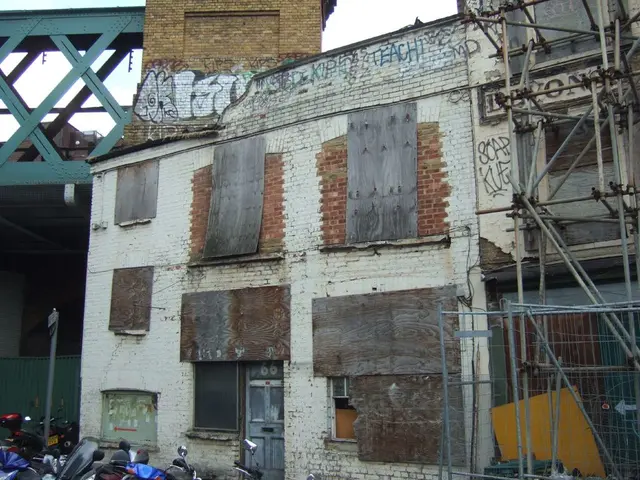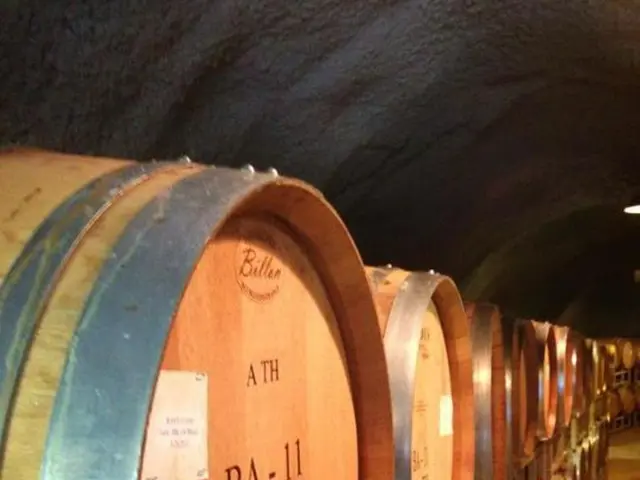Energy Struggles: Leag Workers Speak Out Against Perceived Southern Bias for Gas Power Plants
Southern Regions Preferentially Receiving Gas-Powered Plants, Sparking Concerns of Imbalanced Distribution - Southern Regions Show Preference for Gas-Fired Power Plants, Sparking Concern Amid Clean Energy Advocates
Gas power plant, Leag, Energy supply, Disadvantage, Germany, Regional Favoritism, Katherina Reiche, CDU, Energy company, Cottbus, Works council
A storm is brewing in Germany's energy sector as over a thousand employees of energy company Leag take a stand against what they perceive as a systematic bias towards the south for the construction of new gas power plants. Statements by Federal Minister of Economics Katherina Reiche (CDU) in early June about a "southern bonus" for new gas power plants have left the Leag workers fuming, sparking protests and demands for a level playing field.
"This is unfair!" exclaimed Leag's works council chairman, Uwe Teubner, during a works meeting at the Cottbus football stadium. Teubner led the employees in a rally, holding up signs reading "No Blackout" and unfurling a banner on the pitch that read "Transformation bonus instead of southern bonus."
The CEO of Leag, Adolf Roesch, echoed the sentiments, stating, "Gas power plants must be built equally across Germany." He has urged the federal government to provide swift clarity on the issue. Leag aims to build hydrogen-capable gas power plants in the southern Brandenburg industrial park Schwarze Pumpe and in Lippendorf, Saxony.
Minister Reiche sees focus on gas power plants in the south
Minister Reiche has revealed that a concentration of new gas power plants will be created in the south of Germany. A "southern bonus" is planned, ensuring that two-thirds of the total capacity tendered will be built in the southern grid area, as explained by the CDU politician in Bavaria in early June.
The plans call for the construction of up to 20 gigawatts of power plant capacity in Germany, with state funding that must be approved by the EU Commission. Gas power plants are set to step in when renewable energies fail to meet the country's electricity demands during "dark doldrums" when there is no sun or wind.
Leag takes steps towards renewable energies
To adapt to the growing need for renewables and the agreed coal phase-out, Leag is diversifying its business fields, investing in wind energy, photovoltaics, and battery storage. The region is experiencing structural changes, with no more electricity to be generated from brown coal after 2038, as stipulated by the Coal Phase-out Act. Teubner argued that a transformation bonus for investors would be a more justifiably fair alternative to the controversial "southern bonus."
CEO Roesch addresses business challenges
Roesch acknowledged the difficulty of the current business situation, revealing that the company earned more money than planned in the first quarter of the year. However, during months with high production of solar and wind energy, Leag found itself less in demand, resulting in a loss of over two million euros in contribution margin over the Pentecost weekend.
Regarding job security, Roesch addressed the Leag employees, asserting, "If you're wondering, 'Is my job secure?' – I won't make promises I can't keep." Despite the challenges, Leag plans to use its financial resources to secure a future for its employees.
- The Leag workers, voicing their concerns about perceived regional favoritism in the construction of new gas power plants, demand a level playing field across Germany, with industry experts like Adolf Roesch, the CEO of Leag, advocating for equal distribution of gas power plant construction.
- Amidst the push for more renewable energy sources, Leag's works council chairman, Uwe Teubner, argues for a transformation bonus as a more fair alternative to a proposed "southern bonus," highlighting the importance of fostering investment in renewable energy projects such as wind energy, photovoltaics, and battery storage.







